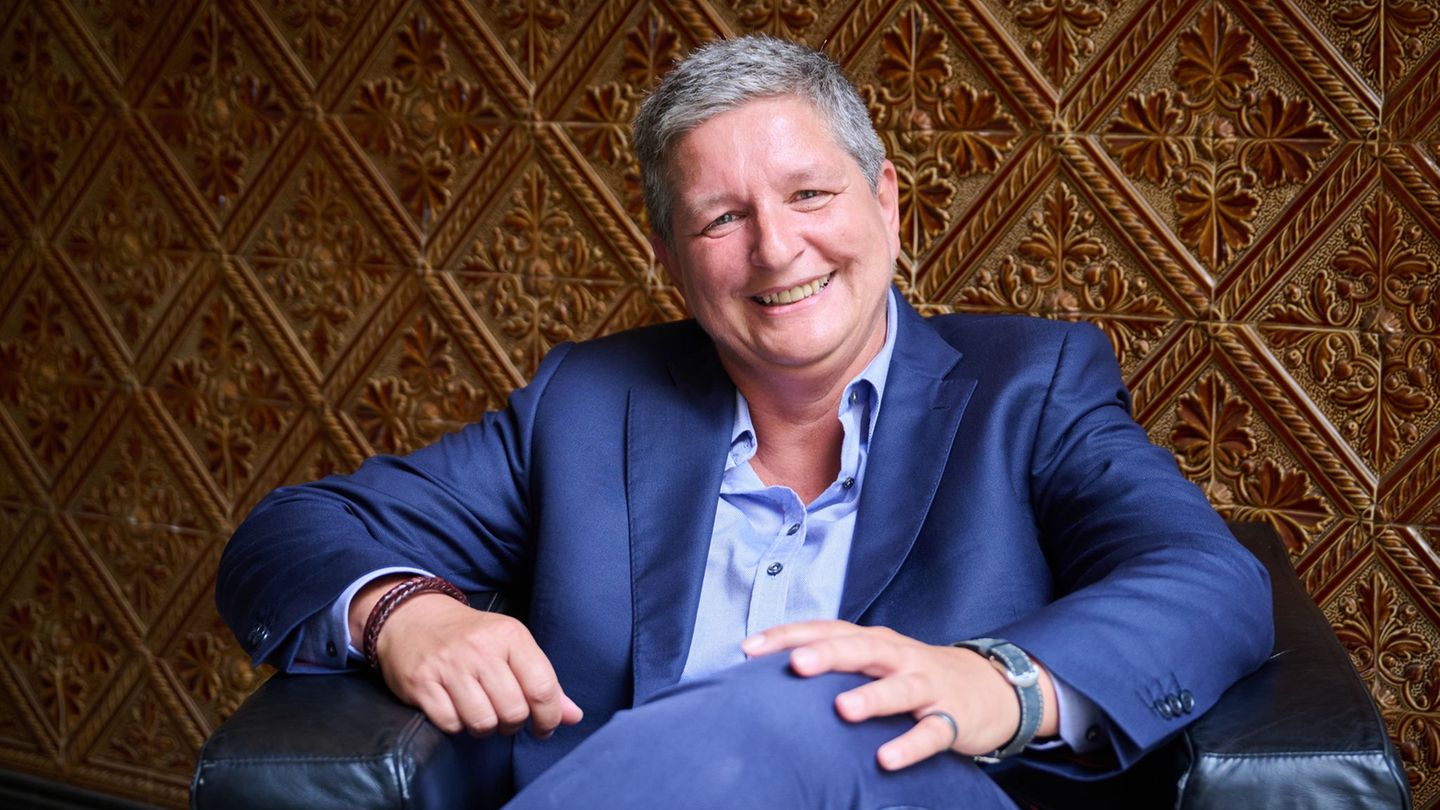In the Costa Salguero center, through 7 stages, crypto experts, economists, entrepreneurs, businessmen, and developers They converged in the same space with a single purpose, to discuss blockchain and cryptocurrencies and how this technology will continue to impact the economy, work, money and society in general. Ámbito interviewed four experts who are behind different projects that make up the crypto ecosystem.
Creators 3.0: series and independent content
The CEO and co-founder of Flixxo, Adrian Gareliktook a few minutes to chat with Ambit and explain what it is about Flixxo, the streaming platform that uses blockchain to offer audiovisual productions without charging a subscription.
“Flixxo is a platform created for give power back to the creator that uses technology to meet its objectives. Have our own cryptocurrency, which allows the entire economic flow of the platform to be transparent. Users need flixx to see content, they can buy them or they can earn them by watching advertising, inviting friends or completing challenges and every time they see content they pay the Creator those flixx. At the same time, The creator can sell them to the advertiser who needs flixx to advertise and charge pesos dollars and pay the bills for your house,” he explained how this project works.
In this regard, he expanded that the service is free But they invite the creator to return part of his profits so that they can maintain the project. “It is a community platform and we try to be as horizontal as possible,” he said and expanded on the origins of this project: “First we started because we believe in the idea, and second because We were financed through a community of contributors, almost 2,000 people spread around the world. “They contributed capital for this to exist.”
After highlighting that the learning curve was not easy, especially because the entertainment industry is very vertical, he explained what a creator 3.0: “He is a totally independent creator who wants to tell the story now and does not want to enter into a platform process with editorial lines, with teams of scriptwriters, and he is a collective creator who knows that his brilliance is much greater when a constellation shines.”
Flixxo has a community that integrates 250 creators and 150,000 registered usersthat its central objective is to continue growing: “We want a product that is as direct as possible, that is as easy as possible, and that even my mother can use it.”
Traditional finance and crypto world
Guido Messi, Head of Ripio Selectafter participating in a panel, chatted with Ambit on various topics and, above all, what will be the new challenges that the ecosystem presents. “I think it’s very interesting what’s happening where the traditional world that is beginning to incorporate cryptocurrenciesthen it is no longer a universe where if you want a cryptocurrency, you have to operate with Ripio and you cannot use a bank like BBVA or HBC, now there are many partners that provide service to each other,” he said.
“This will end up being a kind of big fintech world. Because many fintechs provide technological services to banks”, he explained and added that it will be very interesting to see how the regulation progresses. “In the world of traditional finance, some entities are custodians, others are markets, others are brokers, in the crypto world everything is involved in the same thing. One of the things that could happen is to separate these businesses. For the crypto world that can be a challenge,” he analyzed.
Later, he highlighted, “Lightning is being a revolution in everything that is payments. Ethereum is making many advances for scalability. There are many industries that are being built in that bear market, which are the tokenization of real assets, the decentralization of social networks. At the same time, there are blockchains that want to be secure and others cheap, it is interesting to see how space for the future is formed“.
Dollarization and cryptocurrencies
Elisandro Santos, Marketing Manager in Latam for BingXalso in conversation with Ambit He spoke about the current economic context of Argentina and what trends he sees in local clients. “We are seeing in the Argentine public the transformation from the comment ‘you have to buy dollars and keep them under the mattress’ to ‘today our generation carried the same thing but in cryptocurrencies.’ This is how they buy stable cryptocurrencies and keep them in wallets“.
Other trends that he could observe are not only in Argentina but also in other parts of Latin America is the staking, a kind of fixed term for the crypto world. “It also looks very strong arbitration which is basically buy a currency at a fairly economical price and sell it a little more expensive and get a very small return on it”.
Santos also spoke of the important adoption that exists in Argentina but of the need to beware of frauds that, often in search of impossible returns, many users became victims of scams. “I think it is very likely that we will have another crisis in the world of crypto, but it will be healthy and cleansing, because today there are many projects that are scams or are models that do not have a real project., then somehow a little cleaning is needed. But more massive adoption where the user experience makes the processes much easier is also going to be inevitable,” he concluded.
The crypto world behind business developments
Ambit passed by the stand Countrymen and chatted with Álvaro Echazu, Head of Product Design. “We are a business development and digital product design agency. We accompany clients between phases. The first phase is to help them in design and experimentation (collect evidence that makes them understand if that idea can work or not) the second phase is to help them design and build their digital product that will support that business idea and the third phase (once we already have a product on the street) to start scaling them,” he explained about the company’s operation.
“One of the investigations was to try to understand What were the main friction points when adopting web3 products? and one of the things we found is that there are many similar products without a differential competitive value, such as making similar wallets,” he said and told what he believes was the paradigm shift: “In the last two years there was a fairly strong economic recession and investments in a lot of projects fell.which first made many startups go bankrupt and second, it became increasingly difficult to start a business based on raising capital. Before, there was much more financing available, which meant that we had to think about products with added value.”
Source: Ambito
I am a 24-year-old writer and journalist who has been working in the news industry for the past two years. I write primarily about market news, so if you’re looking for insights into what’s going on in the stock market or economic indicators, you’ve come to the right place. I also dabble in writing articles on lifestyle trends and pop culture news.




